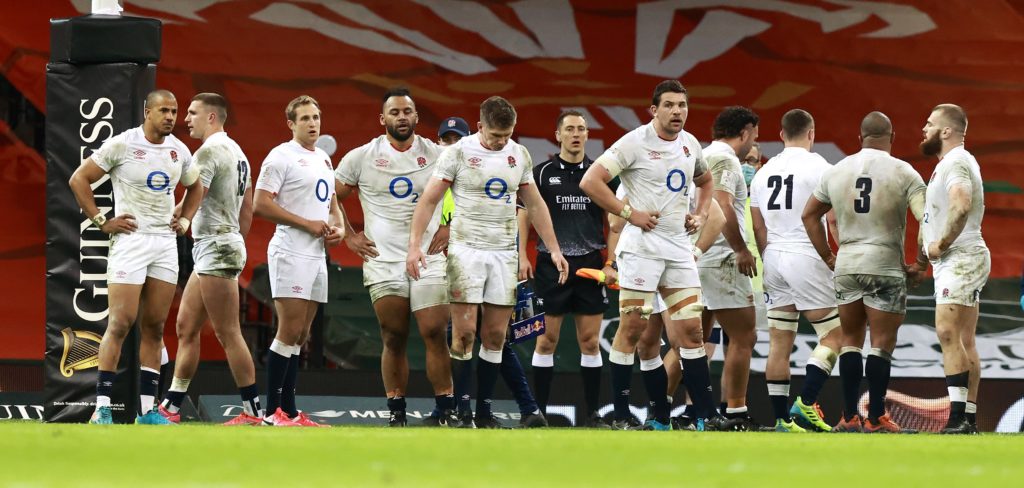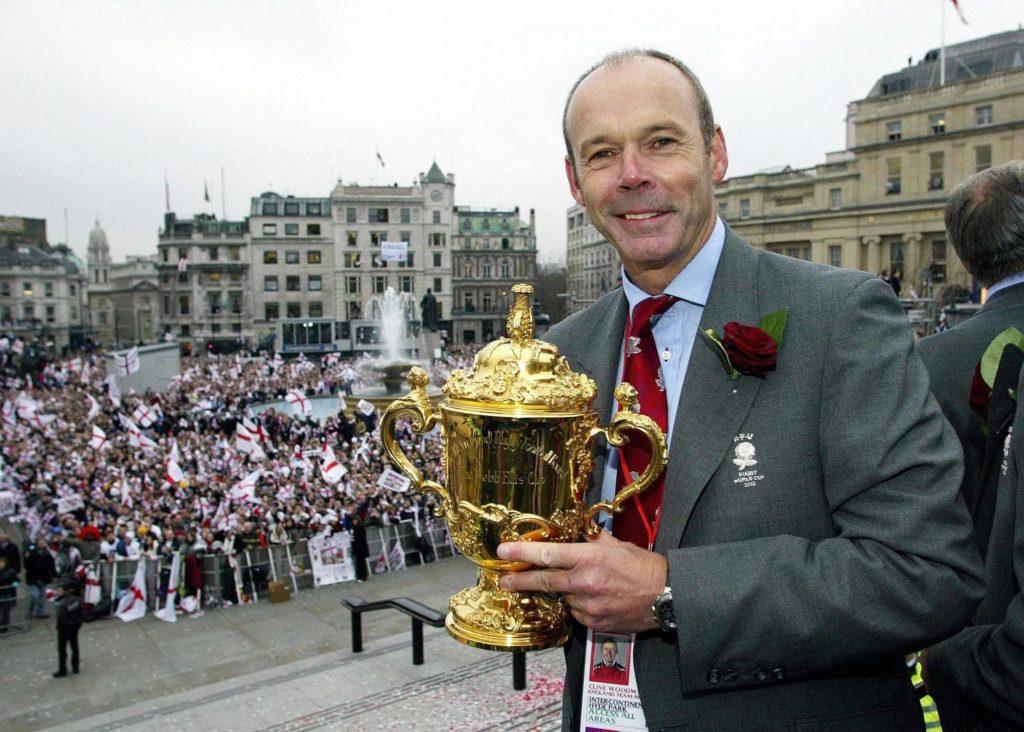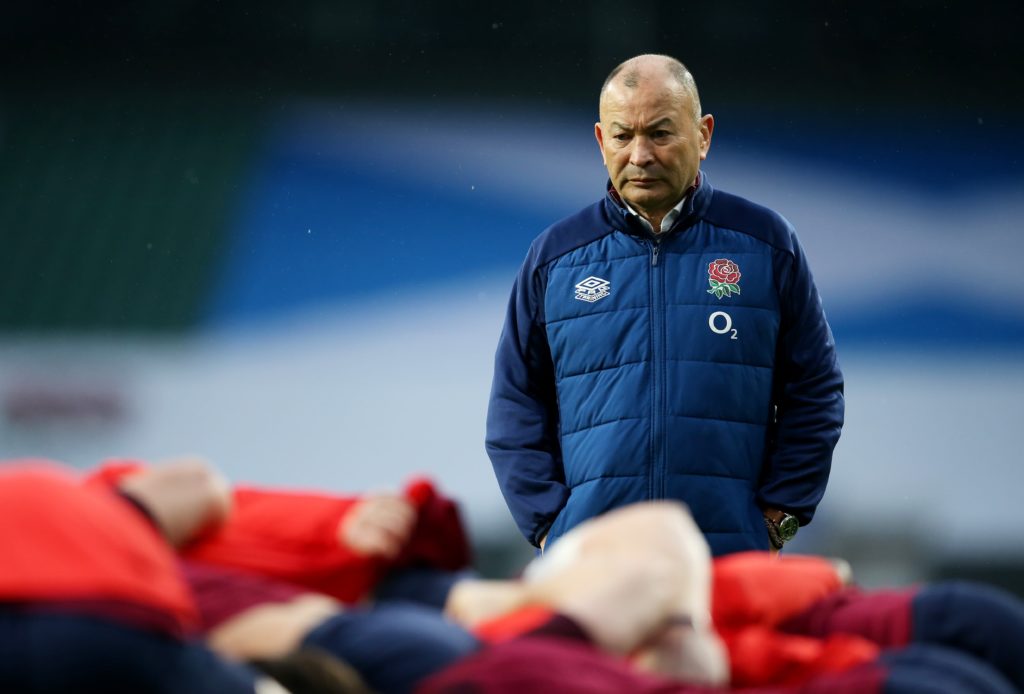‘Can you write the case for Eddie Jones?’ they said. ‘Can you write the one that says it’s not all bad for England?’ Gee, thanks. What is it with the gigs no one else wants? Not only do they want an article that disagrees with absolutely everyone in this green and pleasant land who has a pulse, they want one that toes the Twickenham line, and sides with HQ.
Why do you want to become a journalist, son? ‘Well, sir,’ no one said, ever, ‘I’d like to become a mouthpiece for the Establishment, to take the pressure off those who labour in highly paid jobs of great prestige and profile. One day I should like to defend England, with all their resources and swagger, when they finish fifth out of sixth for the second time in four seasons, when they lose to all three of their historically downtrodden and exploited satellite lands for the first time since I was coming on four, when a narrow majority of my colleagues in the rugby press were as yet unborn. I want to write that piece.’
But this is what we get paid for. The editor is boss and the only one who can take a chin-stroking overview. Every other writer on this site has had a turn at slagging off England, so for the sake of balance someone is going to have to face the derision and abuse reserved only for those who try to be positive in the face of hopelessness. No one wants to have to write what follows any more than you want to read it, but our captain has spoken, and this beleaguered soldier hereby wades into no-man’s-land at his command, to face enemy fire, armed with Blackadder’s trusty stick.

Luckily, someone has scratched a couple of digits on the stick, as if trying to communicate from the other side, to help a soldier on mission impossible. It is the number 77. This triggers a memory of something that came up recently, while English rugby resounded with the cries for you know whose head. It at least gives hope all is not lost.
Eddie Jones’s win rate as England head coach is 77 per cent. Before this Six Nations horribilis, it was 80 per cent.
But they’re funny things, statistics. Them and damned lies. Win rates are easy if you’re playing rubbish teams the whole time. And if you haven’t been in charge for very long.
Alas, next to the 77 is scrawled a 64. That’s the number of Tests Jones has overseen as England coach. That makes him the second longest-serving England coach of all (by Tests played), second only to Sir Clive ‘Judge Me On The 1999 World Cup’ Woodward.
Woody had the biggest, badass England team of all time, which he wheeled out against the weakest international field in living memory, the coaching equivalent of firing a submachine gun at a bloke with a stick.
Sir C oversaw 82 Tests for a winning ratio of 71 per cent. Considering Woody had at his disposal the biggest, baddest England team of all time, which he wheeled out in the early years of this century against the weakest international field in living memory, the coaching equivalent of firing a submachine gun at a bloke with a stick, Jones’ win ratio against the most competitive international field in history is worthy of some credit at least. Maybe the hysteria surrounding Jones’ recent record is a tad, well, hysterical after all.
There is no doubt his England team are not as great as Woodward’s, but any attempt to untangle from the strands of history the contribution of a coach to the quality of a team is doomed to failure. Some will swear blind that Martin Johnson, Jonny Wilkinson et al represented a calibre of player simply beyond any generation of Englishmen before or since; others will say that Maro Itoje, Owen Farrell et al could and should be just as great.

What is surely undeniable is that the gap in quality between this England team and the competition is far smaller (non-existent at the moment) than that between Woodward’s England in their pomp and the rest. From 2001 to 2003, England were all but untouchable (played 37, won 34, for a 92 per cent win ratio).
And New Zealand were the weakest they have ever been. Australia were clinging on to recent glories. South Africa were a rabble. Wales were a rabble. Scotland a rabble. Ireland on the up, but still basically the side that mustered eight Five Nations wins in the entirety of the 1990s. France were France, impossible to know, but liable to be thrashed at a moment’s notice.
Every single one of those sides today are capable of beating any other – and would expect to on home soil. No1 spot in World Rugby’s maligned rankings system was shared around liberally up to and during the last World Cup. In August 2019, England were fifth; in October they were first. Wales finished that August in top spot; one week later they were fourth. In between times, Ireland had a go, so too New Zealand, as ever – before South Africa ascended, world champions, despite having been comprehensively outplayed by New Zealand on the opening weekend. Even now, Six Nations champions Wales are in sixth place. Not a hair’s breadth between any of these sides.
To maintain a win record of around 80 per cent in the face of all that is not the stuff for which one should be sacked. At least not in a sane world. The more the world grows hysterical, the more we are enjoined to ‘follow the data’. If that is our directive, it turns out a stick full of data might indeed be all that is needed to cross no-man’s-land safely in defence of Jones.
People complain about England’s decision-making and tactics, but it is amazing how both deteriorate when everything else goes to pot.
One other set of data worth considering as the world screams that England need renewing is their age and experience profile. England’s starting team against Ireland finished the Six Nations with 784 caps between them and an average age of 28. Just about perfect for a World Cup in two years’ time and certainly the healthiest profile of the Six Nations. France are a year and a bit younger but less than half as experienced; Scotland a few months younger and much the same; Ireland are two years older but a hundred caps less experienced. And Wales are the same age as Ireland with more than 1,000 caps between them. Talk about a need for renewal.
So much for the data. The reality is, England in 2021 (and there was quite a bit of shrieking about this at the end of 2020 too) have played shit. Such is the intermittent nature of international rugby, poor runs of form take an age to play through. People complain about England’s decision-making and tactics, but it is amazing how both deteriorate when everything else goes to pot. No one kicks ball away and ignores overlaps for strategic purposes – they do it when they are playing shit.
There are obvious reasons why this loss of form might have been so. The most obvious is that others just played really well and are actually (and the English do sometimes struggle to get their heads round this) really good. Another is the reliance on the Saracens contingent. One thing we have surely learnt is that there is no substitute for match practice. Especially when everyone else is in such fine form.

But there may be a more profound problem – and this is where a data-led completion of mission impossible starts to fall apart. The key, as ever, lies with Jones himself.
He has already coached England for longer than he has anyone else… It may be he is uncomfortable himself with still being there; it may be his players are too.
The other constant presence in this hysterical world is that of the independent review. England have set one up to investigate Jones. If they follow the data, he will be safe, with quite possibly the most important piece being the one that gets printed each year on his P60.
But Jones knows only too well the shelf-life of a coach. He has already coached England for longer than he has anyone else. And working for him is a famously exacting experience. It may be he is uncomfortable himself with still being there; it may be his players are too.
We in the rugby media spend our time in the company of coaches – and Jones has been there or thereabouts for more than 20 years now. A personal opinion is that he is the most intelligent and refreshingly different of them all, but he is a contrarian, with a self-belief – or is it an ego? – the size of Sydney.
Jones wouldn’t be the coach he is if he didn’t harbour a wilful disregard for what everybody else thinks. It’s probably the secret to his success, or at least a side-effect of the crushing self-belief that is. But it’s a precarious ridge to tread and depends utterly on the licence to do what you want that winning bestows. In other words, you better hope you don’t start losing.
A loss ratio of 60 per cent this year means such a licence has been withdrawn from Jones – for now at least – with a seat in front of the beak its replacement. Suddenly, that refusal to accede to the bleeding obvious starts to look like wilful stubbornness.
Is he too stubborn to go? Probably. Should he stay?
The intimidating breath of our editor is hot overhead.
Yes, yes! All right! It would be insane to sack him after all he has achieved and with only two years to go till a World Cup England are as well placed to win as anyone.
Happy now?
And breathe out. It’s over. For this article at least…
More stories from Michael Aylwin
If you’ve enjoyed this article, please share it with friends or on social media. We rely solely on new subscribers to fund high-quality journalism and appreciate you sharing this so we can continue to grow, produce more quality content and support our writers.


Comments
Join free and tell us what you really think!
Sign up for free